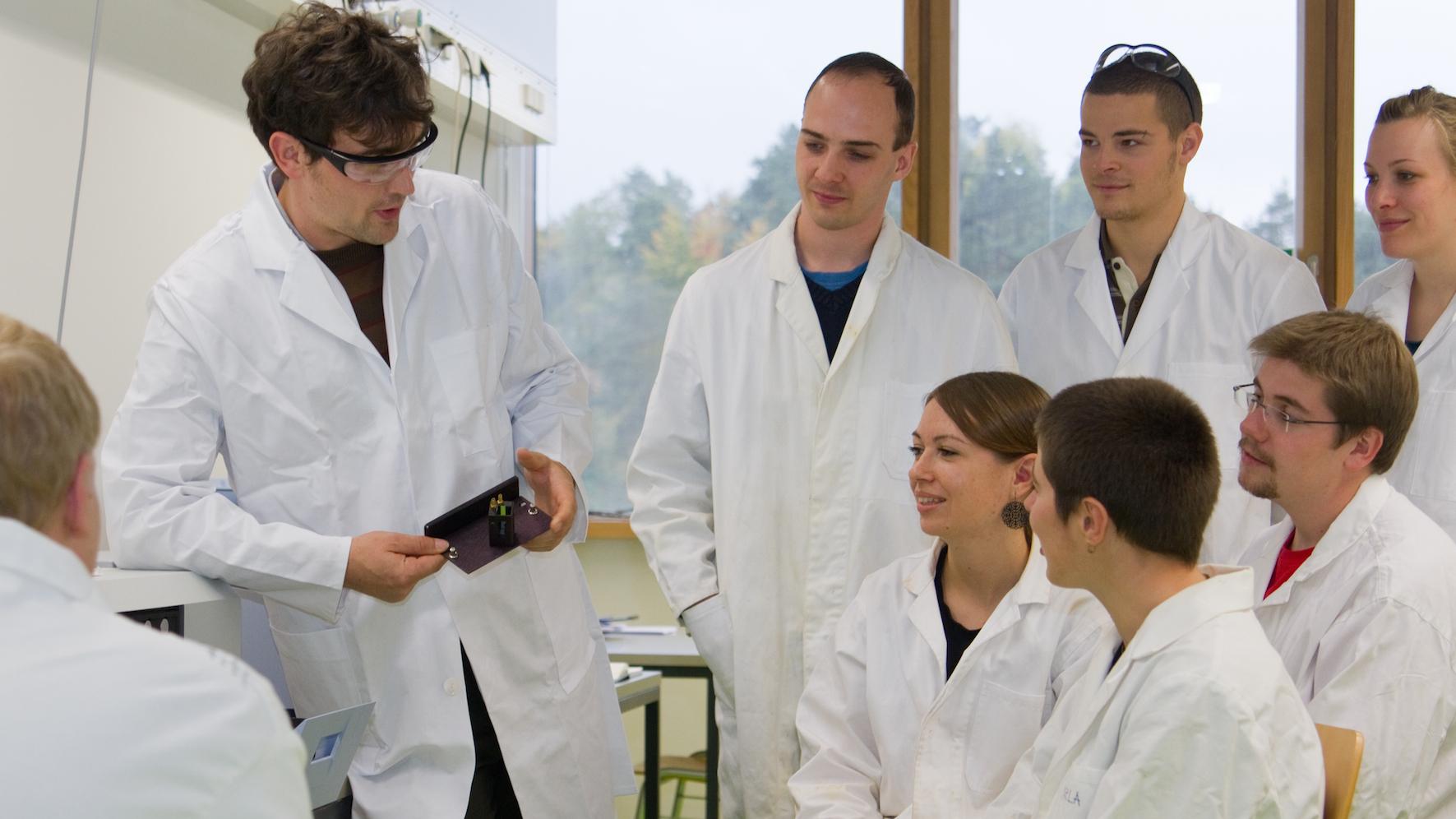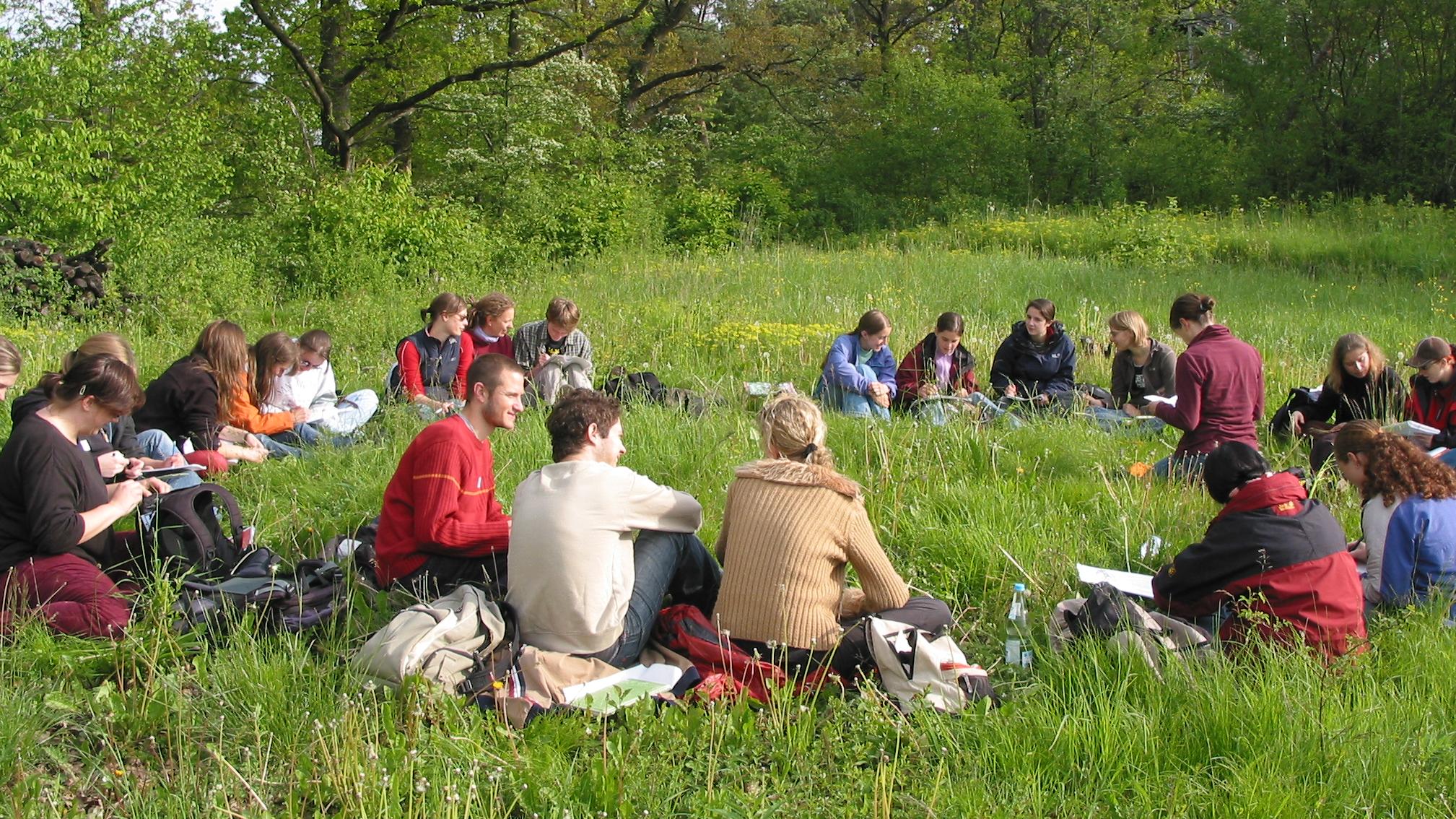Study Biology in Tübingen ...


Degree programmes
- B.Sc. Biologie (teaching language German)
- B.Ed. Biologie (teaching language German)
- M.Ed. Biologie (teaching language German)
In addition to degrees in biology (Bachelor of Science, Bachelor of Education and Master of Science), the Department of Biology participates in interdisciplinary degree programmes in cooperation with other departments and faculties at the University of Tübingen. The Bioinformatics and Cognition Science courses, established in cooperation with the Department of Computer Science, has attracted many students. In cooperation with the geosciences, another very popular course, Geoecology, was set up. In 2011, a new degree course, Nanoscience, was initiated.
The Graduate School of Neural and Behavioural Sciences and Max Planck Research School, organized in cooperation with the Faculty of Medicine, offers courses in English leading to a master’s or doctoral degree.
Students
In the winter semester of 2023/2024, about 1400 biology students were registered in Tübingen. The department offers 178 places for Bachelor of Science degree students, 50 places for Bachelor/Master of Education students, and 122 places for our four master’s degrees. Admission to all degree courses is restricted.
Quality of Teaching
Great importance is attached to the quality of teaching in Biology. In recent years, both the basic and advanced study programmes in Tübingen have undergone fundamental reforms. Members of the Department have, on several occasions, been awarded a state teaching prize (Landeslehrpreis). In all German university rankings, the Biology Department in Tübingen has achieved a place in the top group for scientific reputation and curriculum.
Ranking
The Department of Biology at the University of Tübingen has achieved excellent results for both research and teaching and in all nation-wide university rankings.
| Source | Ranking |
| Top group overall | |
CHE 2012/13 | Top group overall, research grants (place 2 out of 68 universities), reputation (place 4 out of 68), publications (place 9 out of 68), support for students (place 11 out of 68) |
CHE 2006/07 | Academic studies and teaching (teachers’ training): overall study situation: top group (place 4 out of 44) |
CHE 2006/07 | Academic studies and teaching (Diplom): overall study situation: top group (among the first 5 of 68 universities) |
DFG 2006 | Research grants 2002-2004: place 9 out of 59 |
